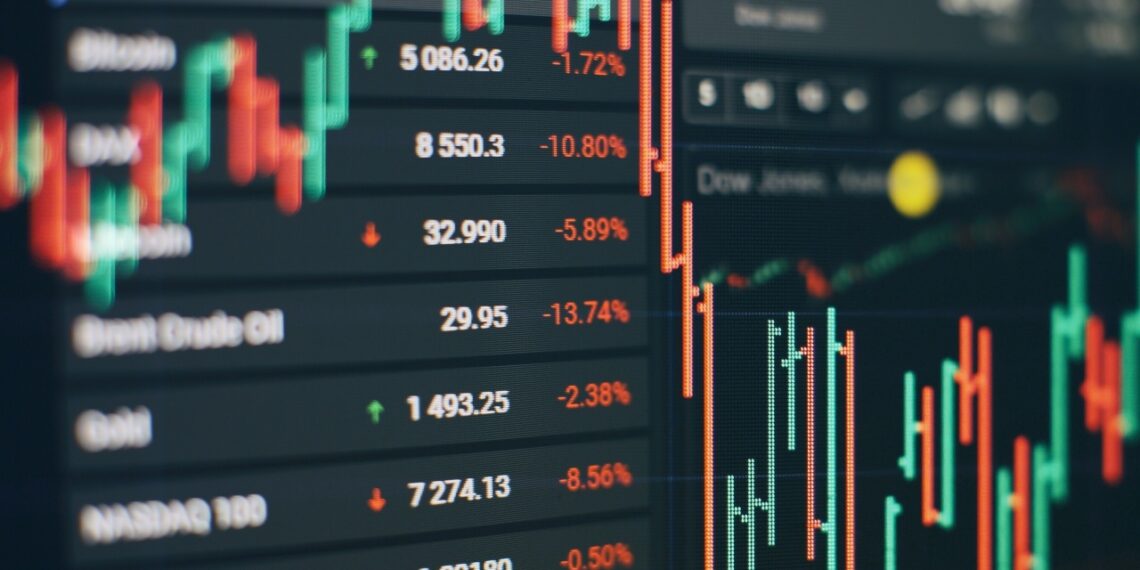No products in the basket.
Thailand’s SET Index fell slightly amid profit-taking in energy stocks, shifting focus to ‘Yield Play’ stocks. Exports surged 7% in August. Australia’s inflation hit a three-year low, and South Korea prioritizes domestic demand recovery.
The global markets on September 25, 2024, presented a mixed landscape with notable movements across various sectors. Here’s a brief overview of the key highlights:
Equities: The Chinese market continued its upward trajectory, buoyed by a substantial stimulus package, which has been a significant factor in the market’s performance. Novo Nordisk, a global healthcare company, was particularly in focus due to its strategic moves.
Currencies: In a significant development, the USDCNH dipped below 7 for the first time in 16 months, signaling a shift in currency dynamics and reflecting broader economic trends.
Commodities: Industrial metals saw a jump, largely attributed to the stimulus from China, with silver also climbing by 4%. This rise indicates a robust demand in the industrial sector, which is closely watched by market analysts.
Fixed Income: Expectations of rate cuts in Europe and the U.S. have been driving yields lower, as investors anticipate more accommodative monetary policies in the near future.
Economic Data: The Riksbank policy decision and U.S. new home sales were among the key economic data points that market participants were watching closely.
The global market roundup provides a snapshot of the complex interplay between economic policies, corporate actions, and macroeconomic indicators. Investors and analysts alike keep a keen eye on these developments to gauge the health of the global economy and make informed decisions.
Emerging markets are poised for a dynamic year in 2024, with several factors influencing their economic trajectory. According to Amundi Research Center, a positive backdrop is anticipated as inflation trends lower, allowing for the continuation of the easing cycle by Emerging Market (EM) Central Banks that began in 2023. This is expected to support EM assets, especially equities, as historically, such a combination has been beneficial.
S&P Global highlights a divergence in growth among emerging markets, with some countries moderating after outperforming in 2023 and others potentially seeing an increase after underperforming. This suggests a nuanced landscape where individual market performance may vary significantly.
J.P. Morgan Research anticipates a bumpy start to the year for emerging markets due to high rates, geopolitical developments, and sustained U.S. dollar strength. However, the outlook for EM is expected to improve throughout the year, driven by growth divergence between emerging and developed markets, a demand for diversification away from the U.S., and low investor positioning.
State Street Global Advisors (SSGA) offers a more cautious perspective, noting that while the outlook for emerging markets remains vulnerable amid an uncertain global landscape, there are opportunities in emerging market debt and select equities.
Overall, the outlook for emerging markets in 2024 is cautiously optimistic, with expectations of improvement in macroeconomic conditions and potential opportunities for investors in specific sectors. However, the situation remains fluid, and investors are advised to stay informed of the latest developments and analyses. For those interested in the fastest-growing emerging markets projected through to 2029, data from the International Monetary Fund’s World Economic Outlook provides valuable insights.
Thailand’s Stock Market and Export Performance
Thailand’s SET Index closed at 1,461.58 points, down 0.04% with a trading value of 62.58 billion baht. Analysts noted a minor market adjustment after continuous gains, with profit-taking in energy stocks prompting a shift towards ‘Yield Play’ stocks like BGRIM and GPSC. The market is expected to remain sideways ahead of impending US job data. In August, Thailand’s customs-cleared exports increased by 7.0% year-on-year, surpassing projections and following a robust 15.2% rise in July.
Inflation and Economic Policy Updates
Australian consumer price inflation hit a three-year low of 2.7% in August, down from 3.5% in July, influenced by government electricity rebates and falling petrol prices. Core inflation also dropped to its lowest since early 2022. Meanwhile, South Korea’s Finance Minister, Choi Sang-mok, highlighted the government’s policy focus on boosting domestic demand rather than addressing household debt. He expects the Bank of Korea to make prudent decisions following a recent rate cut by the U.S. Federal Reserve.
Discover more from Thailand Business News
Subscribe to get the latest posts sent to your email.














